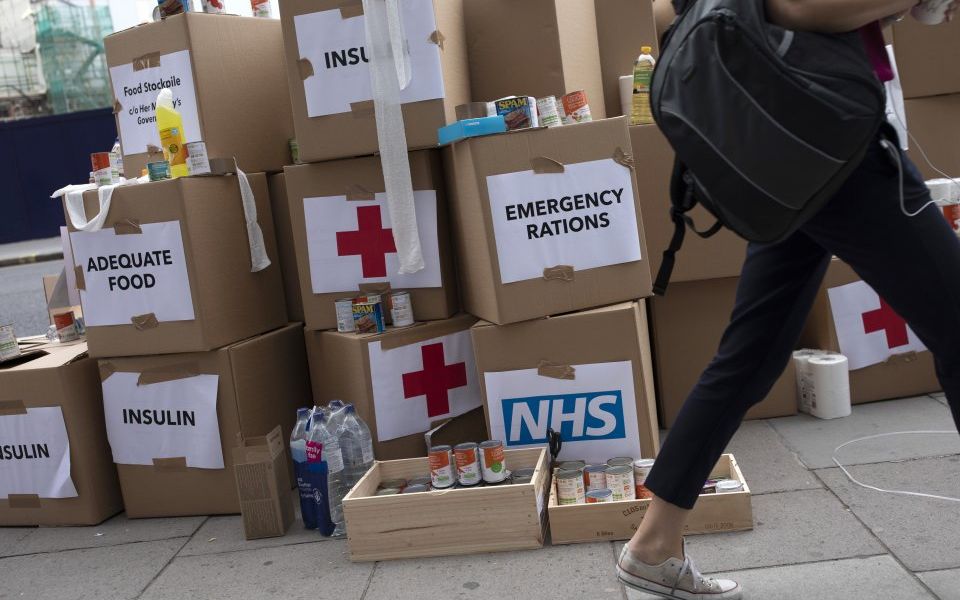Deal or no deal: Do UK supply chains have what it takes?

Waking up to doom and gloom headlines about Brexit is becoming a regular occurence. The latest panic? Stockpiling.
If the UK leaves the EU without a deal – which is now a distinct possibility – importers could face massive delays at customs due to increased administrative processing at border points.
Dover, will be the key choke point: 17 per cent of the UK’s entire imports cam via Dover in 2017, 98 per cent of which is from the EU.
It is fair to say that the port will be hit hard by Brexit. Additional minutes spent at customs will compound very quickly and cause huge congestion to the surrounding area.
Goods will be stuck in transit, unable to be delivered in the relatively predictable timeframes that supply chain planners have become accustomed to.
No one quite knows how severe the impact will be, but that ‘unknown unknown’ is keeping a lot of business leaders up at night.
Some organisations have been putting preparations in already; Airbus announced they were going to stockpile goods in preparation of increased tariffs and supermarkets have reportedly been asking suppliers to provide a breakdown of any ingredients and packaging materials sourced from the EU.
The UK government is consistently vague when asked whether retailers will need to stockpile or not, but one thing is clear – it looks like they’re going to have to take matters into their own hands.
Stockpiling is to "accumulate a large stock of goods", usually in preparation for emergency to prevent shortages of essential goods like food and pharmaceuticals.
Stockpiling is something that until recently felt like it was reserved for "preppers" – those preparing for some doomsday event so they could survive life post-apocalypse.
If the UK doesn’t make a deal with the EU, or it doesn’t quite go to plan, increased border controls and confusion will likely create a period where food and other essentials are delayed.
At the moment, the UK operates on a "just in time" model, which means that groceries like fruit and vegetables arrive fresh and get stacked on the shelves straight away. Without realising it, that apple you’re eating right now might have been in a truck from Calais just yesterday.
However, a crucial element of effective stockpiling is space. You need somewhere to put the goods whilst they are waiting to be transported to their final destination. But the UK doesn’t have any warehouse space left, right? Wrong.
The industry is telling us that the UK can’t deal with a stockpiling crisis. Ian Wright, director general of the Food and Drink Federation said that “there isn’t warehousing space in the country” because “there doesn’t need to be, because companies do not hold huge inventories”.
Helen Dickinson, chief executive of the British Retail Consortium also agrees: “Stockpiling of food is not a practical response to a no-deal on Brexit. There’s no space to store food”.
I am glad to say that those statements are not entirely true. There is plenty of warehouse space available, it is just space hidden away because it is unused space in warehouses that are already "occupied".
The current model of warehousing is fragile because it isn’t flexible. It is rigid by design.
Companies commit to strict long-term leases that take a lot of time and money to agree. The whole process of finding and taking warehouses is so slow that you do not want to have to do it too often. This results in organisations over-estimating their needs and buying more space to accommodate growth.
Many don’t grow as expected or only need increased capacity at certain times of year. Data suggests that warehouses in the UK are on average only 75 per cent full.
That means there are millions of square feet of warehouse space that is simply not being used – and that includes vast amounts of chilled or frozen space for food storage.
A change in mindset
Few businesses know how to tap into this network of space, but this under-utilised space is perfect for when short-term space is needed.
Businesses must get better at using space that is already built instead of building or renting new warehouses to accommodate short-term uncertainty.
A solution to the stockpiling issue and contingency planning in general is on-demand warehousing.
Like AirBnB but for warehouses, an online warehouse marketplace allows organisations to list their available warehouse space, be it 10 or 10,000 pallet spaces, and makes it available to businesses who need the space.
It can be rented for as little as a month at a time, on a pay-as-you-go basis, so it is extremely flexible to be scaled up and down when required.
The sites available cover every type of requirement – from temperature controlled to bonded, from bulk to outdoor space, an online marketplace allows every type of business can prepare for all eventualities.
Organisations need to prep themselves for the unknown.
We should all hope that it will not come to it, but if we do need to stockpile then it is fair to say the space is out there, it just needs to be unlocked.
I joked about surviving the apocalypse, but one positive to draw from all this is that scares like this help focus the mind.
Thinking around supply chains needs to evolve if companies are to survive in the future. Those who adapt to change and adopt new ways of thinking will find themselves better placed for facing the unknown unknowns.